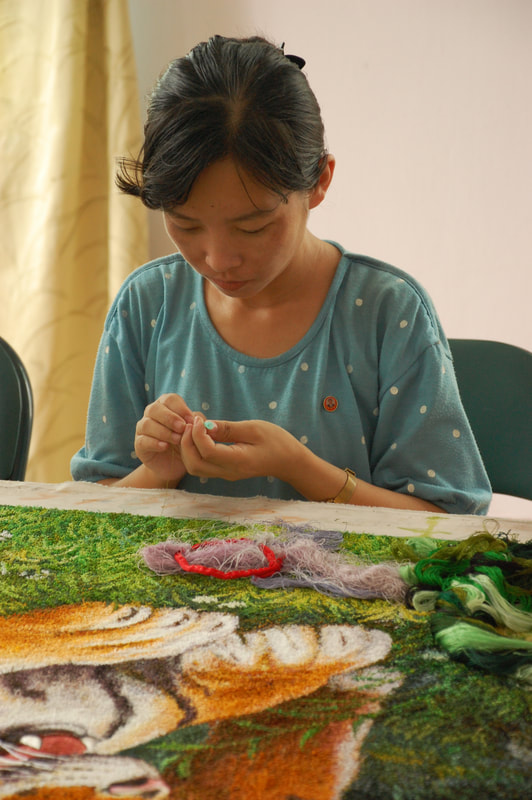|
By Shruti Nallappa, former HRNK Research Intern
Edited by Raymond Ha, HRNK Director of Operations and Research January 28, 2022 Across the world, women are often marginalized, discriminated against, and suffer from harmful gender norms. North Korea is no exception. While the country may be secretive, it cannot hide the fact that life for women in North Korea is brutal and challenging. The North Korean Government’s Discourse on Women’s Rights According to Kim and Easley, “North Korea references gender equality in its socialist constitution, but the de facto social and legal circumstance that women face in the country are far below the de jure status they are purported to enjoy.”[1] While North Korea passed the Women’s Right Act in 2010 in response to international criticism, the actual implementation of the law is questionable. In 2017, at the Convention on the Elimination of All Forms of Discrimination against Women, North Korea’s representatives indignantly refused to provide details on rape, sexual assault, and violence against women when asked about measures taken to address the UN Commission of Inquiry’s 2014 findings of serious human rights violations committed against women who were forcibly returned from China.[2] By referencing gender equality in its laws, North Korea can attempt to mask the reality of what its women face daily. Actions and declarations that purport to ensure better treatment of women by North Korea are solely for maintaining an image on the international stage. Workplace Hierarchy and Lack of Control over Career Choice “No ajumma should become a manager. […] [To control the workers], the managers do not let workers talk, and they speak in vulgar language.” - Female Worker from North Hamgyong Province, Escaped in 2017[3] Since Kim Jong-un’s rise to power, women’s issues have frequently appeared in policy discussions. North Korea has advocated for women to take an active role in the official labor force. However, evidence has shown that a gendered division of labor persists in the form of a “male-official labor and female-unofficial labor dichotomy.”[4] Cho, Yee, and Yi report that the formal economy incentivizes women to exit into the informal economy. State-designated jobs are characterized by gendered divisions of labor. Women are sent to “low-paying fields that require ‘feminine traits.’”[5] This gendered division of labor shapes women’s career preferences. In Cho, Yee, and Yi’s interviews with women who escaped North Korea, most answered teacher, doctor, nurse, and accountant when asked about career preferences.[6] The gendered division of labor in North Korea is a perfect example of the power of harmful societal and gender norms. Single women must use bribes, come up with medical excuses, or fake marriages if they want to leave their state-allocated “official” jobs and participate in the informal market. Married women typically leave their official jobs after marriage and then participate in the market.[7] In addition to being restrained from working in the market to earn a living, women in North Korea also face a strict workplace hierarchy. Older male managers tend to control young female workers. The gender hierarchy coincides with an age hierarchy.[8] Women in North Korea are thus not able to freely voice their opinions or fully participate in the formal economy. These structures perpetuate and reinforce existing inequalities. Conclusion Despite supposed “efforts” by the state to bridge gaps in gender equality, women in North Korea have little autonomy over their own lives. In the workplace, they are discriminated against and have no say or power in what they desire to achieve. They face a gender hierarchy and a gendered division of labor. North Korean women face numerous barriers, such as the fear of persecution by regime officials, lack of access to the outside world, and prohibitions on the freedom of speech. The international community must continue to amplify the voices of North Korean women, send outside information to the North Korean people, and scrutinize North Korea’s continued violations of human rights. Gender equality cannot be achieved if all do not come together. Shruti Nallappa is an M.A. Candidate at the Elliott School of International Affairs at The George Washington University. [1] Kim Sea-Young and Leif-Eric Easley, “The Neglected North Korean Crisis: Women's Rights,” Ethics & International Affairs 35.1 (2021): 19–29. [2] Heather Barr, “Don't be fooled by North Korea's denials on women's rights,” Human Rights Watch, November 21, 2017. Accessed October 29, 2021. https://www.hrw.org/news/2017/11/21/dont-be-fooled-north-koreas-denials-womens-rights. [3] Cho Jeong-ah, Yee Ji-Sun, and Yi Hee-Young, Daily Lives of North Korean Women and Gender Politics (Seoul: Korea Institute for National Unification), 33. [4] Ibid., 29. [5] Ibid., 29–30. [6] Ibid., 30. [7] Ibid. [8] Ibid., 33.
0 Comments
|
DedicationHRNK staff members and interns wish to dedicate this program to our colleagues Katty Chi and Miran Song. Categories
All
Archives
June 2024
Categories
All
|

 RSS Feed
RSS Feed
